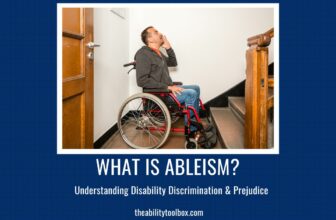
With the internet changing various aspects of life, mental health treatment has also taken a digital turn. But how effective is online therapy for anxiety? Let's explore the benefits of online therapy for treating anxiety disorders.
Understanding Online Therapy
Online therapy, often called e-therapy, involves providing psychological counseling services via the Internet. Individuals can engage with certified therapists through various devices like computers, smartphones, or tablets.
Pros of Online Therapy
- Efficacy: Research indicates that online therapy — especially cognitive behavioral therapy (CBT) delivered online — is as effective as traditional face-to-face therapy for numerous mental health issues including anxiety disorders, and clients are less likely to drop out of treatment.
- Accessibility: It serves as a lifeline for people living in remote areas by offering them access to mental health care. Moreover, those with physical disabilities find it easier to use.
- Comfort and Cost-Effectiveness: Appointments can be arranged at the client's convenience and can be lower in cost due to decreased operational expenses for therapists.
- Anonymity: Many individuals find online therapy to be more private. Some platforms even allow users to utilize pseudonyms which encourages more individuals to seek assistance.
- Dismantling Stigma: The virtual medium can help make mental health treatment less intimidating and assist people in overcoming the stigma associated with mental health problems.
Potential Downsides of Online Therapy
- Insurance Reimbursement: Some insurance providers may not offer coverage for online therapy sessions.
- Licensing Constraints: Certain legal constraints may prohibit therapists from treating patients outside their licensed states.
- Data Security & Technology Issues: Using an online platform can occasionally bring up concerns about privacy breaches and data security.
- Crisis Management Difficulties: Therapists may face challenges managing emergencies remotely.
- Suitability Concerns: Severe psychiatric conditions that require intensive care might not be best managed through online therapy.
- Lack of Non-Verbal Communication: Important non-verbal cues might be missed, particularly in text-based therapies where body language isn't visible.
The Best Therapy Method for Anxiety
Anxiety disorders are some of the most common mental health issues worldwide. Given the many therapeutic methods available, determining the most appropriate approach can seem daunting. Finding an ideal therapeutic technique for managing anxiety is intensely personal and necessitates an approach that resonates deeply with the person dealing with anxiety.
Cognitive Behavioral Therapy (CBT)
Cognitive Behavioral Therapy (CBT) is widely recognized as an optimal method for treating anxiety disorders. At its core, CBT focuses on the idea that our thoughts (cognitions) largely affect our emotions and actions. It helps individuals recognize and challenge their negative thinking patterns and beliefs, substituting them with healthier, more rational alternatives. By modifying detrimental thinking patterns, we can subsequently influence emotional responses and behaviors. For many people suffering from anxiety disorders, this approach helps disrupt the cycle of fear and avoidance by replacing it with healthier coping mechanisms.
However important it is to mention that while CBT proves highly beneficial for many individuals; it's not a universal remedy. Other approaches such as Acceptance and Commitment Therapy (ACT), Dialectical Behavior Therapy (DBT), or mindfulness techniques could potentially serve others better. The effectiveness of any therapeutic method also depends on factors like the therapist's skills, the rapport between therapist-client pairs, and an individual’s dedication to change.
Closing Remarks
Although online therapy presents several advantages and has shown considerable effectiveness in treating conditions like anxiety among others; it's vital to consider both its strengths and weaknesses before opting for it. Finding what suits your individual needs best is key.
Coffee junkie. Spoonie. Writer about all things chronic illness and mental health. Friend of animals everywhere.
Dr. Wilson graduated from Rosalind Franklin University of Medicine and Science and completed her residency in Internal Medicine at Advocate Good Shepherd Hospital in Barrington, IL. Dr. Wilson specializes in providing culturally competent and trauma-informed care to patients with physical disabilities. In addition to her private practice, she works as a science communicator, teaching health literacy to middle school and high school students in her local school district.









